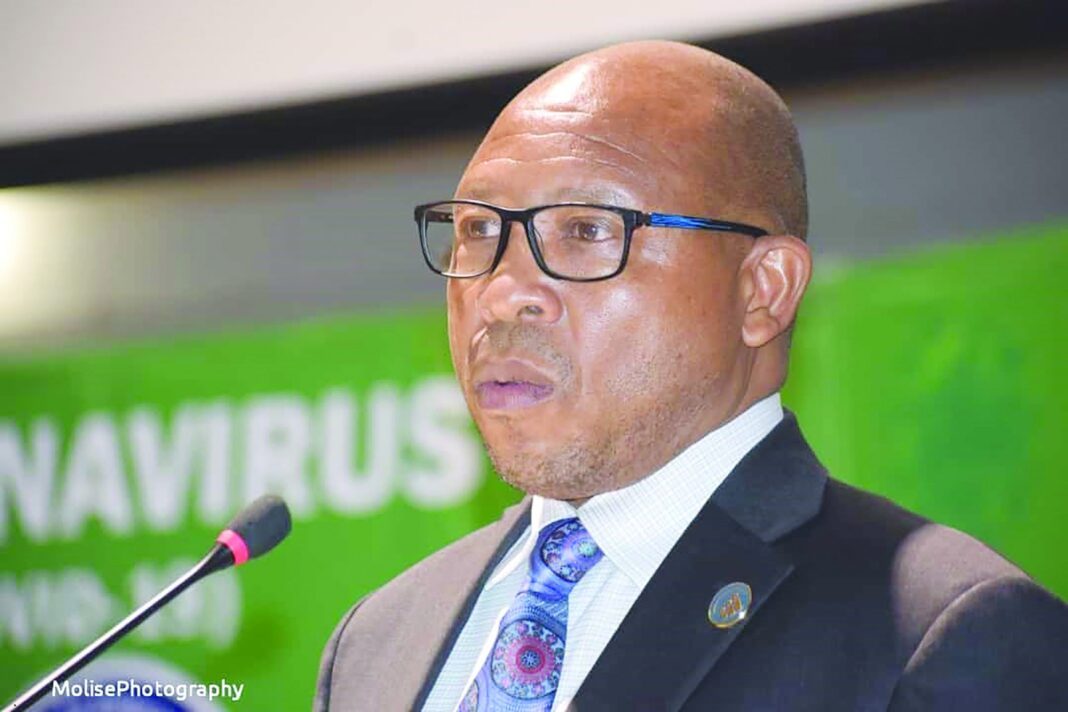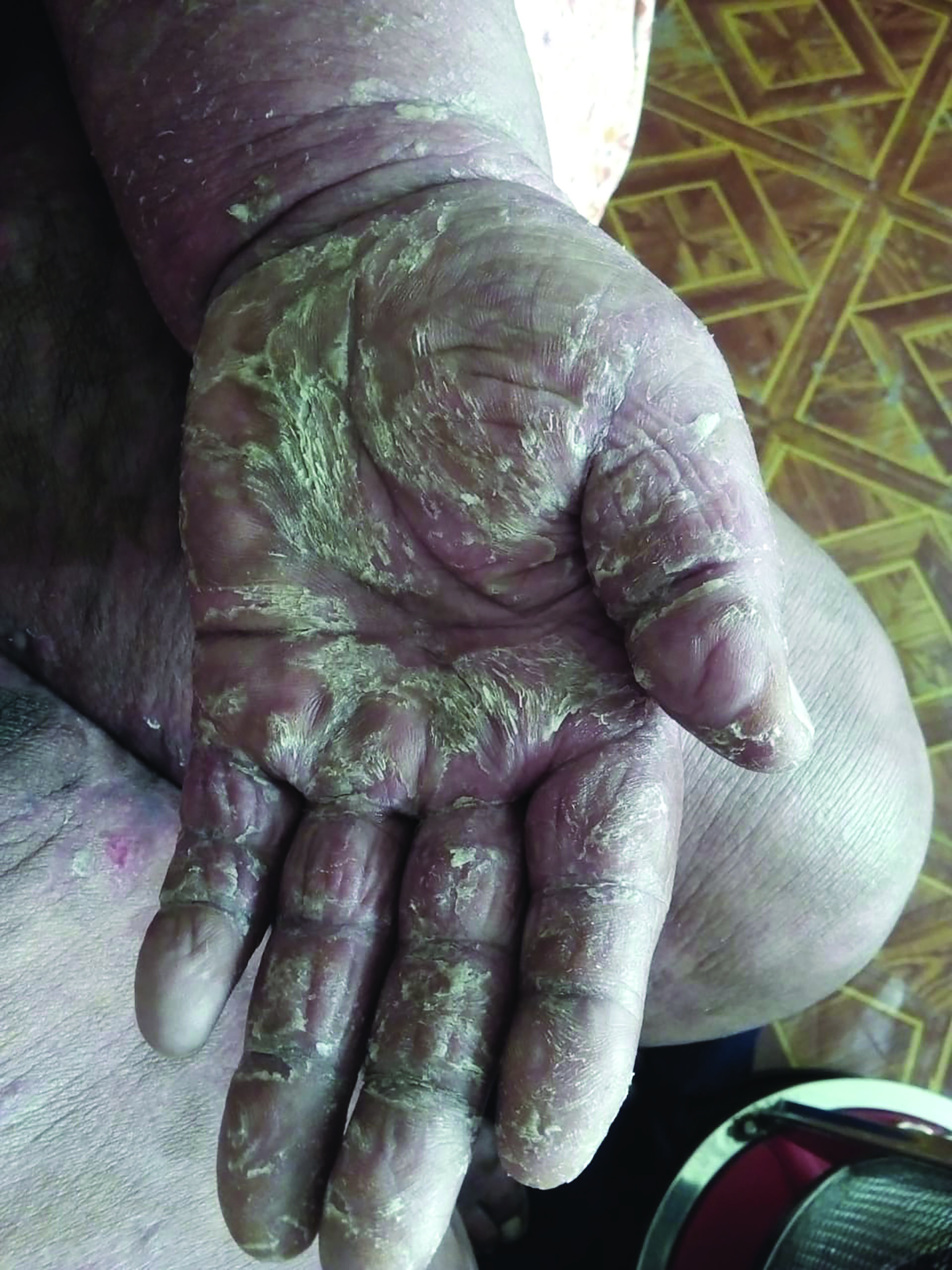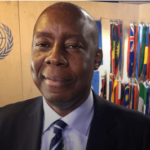Ntsoaki Motaung
The Prime Minister Dr Moeketsi Majoro said it will be almost impossible for government to fully answer to the needs of the country and its people if the state of Gender Based Violence (GBV) still remains high in numbers.
He said this during a special prayer session meant to tackle the cancer that GBV is slowly turning into as part of commemoration of the International Day to End Violence against Women.
“A research conducted by the Commonwealth shows that Lesotho loses 5% its income over GBV. The expenses the government incurs include healthcare for victims, counseling of victims and perpetrators as well taking care of cases in court. Even the families of the victims incur health expenses on their own for the victim,” he said.
The Premier pointed out that the status quo means that poverty, hunger and HIV infection and violation of human rights will not be controlled as long as GBV still exists.
Meanwhile for her part, Minister of Gender, Youth, Sports and Recreation Likeleli Tampane indicated that GBV is a threat to the government as well as the economy of the affected families.
“GBV affects many countries of the globe and Lesotho is not an exception. The cases of gender-based violence seem to be increasing during this period of covid-19,” she said.
Tampane stated that she worked hand in hand with the Office of the First Lady to find out strategies they can use to fight GBV.
“We visited Maputsoe, where we visited a family that had just lost its daughter who was raped then murdered. We also went to St Monica’s where perpetrators raped a woman and killed her, we also went to Mapoteng Ha Makhoroana where a woman was killed and dismembered as well as in Hleoheng where an old lady was killed by her grandson for her pension money. The few examples given do not reflect the whole picture as they represent just part of a single district,” she said.
The Minster indicated that there is a safe haven for victims of GBV, but which, owing to the limited space is utilized without even observing the health protocols set by the World Health Organisation (WHO) for the fight and control of Covid-19.
The United Nations Population Fund (UNFPA) Representative to Lesotho Dr Marc Derveeuw stressed the need for concerted efforts in fighting violence especially against women and girls.
“Enough to domestic violence. Enough to rape. Enough to harmful practices like female genital mutilation. And enough to impunity for one of the most flagrant and pervasive violations of human rights. Women and girls have every right to live free from violence, everywhere. They have a right to peace in the home, in public and online,” he said.
Marc indicated that as the International Day to End Violence against Women is marked, it is a moment for everyone to pause and remember how far to go on this issue.
“A staggering one in three women and girls still experience violence at some point in their lives. This year COVID-19 has fanned the flames. With women locked at home with abusers and household tensions high, calls for help skyrocketed. Many went unanswered because shelters and other services were shut down, but also because assistance is often still not enough, including in humanitarian crises. We must do better. It is time to stand up and say enough to violence not just on one day, but 365 days a year. We must prevent violence. And until we end it, we must provide everything women and girls need to survive and recover, from physical and mental health care to legal aid and support for regaining livelihoods,” he said.
According to the gender based violence indicators study by Gender Links, 86% of women experienced some form of Violence against women (VAW) at least once in their lifetime, including partner and non-partner violence. 40% of men perpetrated VAW at least once in their lifetime. VAW is predominantly perpetrated within intimate relationships, 62% of women experienced, while 37% of men perpetrated, intimate partner violence (IPV).
The forms of violence experienced include physical, sexual, psychological and economical abuse. The predominant form of violence within intimate relationships is emotional violence, which includes insults, belittling and verbal abuse. More than half (52%) of women experienced, and 27% of men perpetrated, emotional IPV in their lifetime. Women also reported physical IPV (40%), economic IPV (30%) and sexual IPV (24%). For all forms of violence, a lower proportion of men admitted to perpetration: emotional IPV (27%), physical IPV (26%), economic IPV (13%) and sexual IPV (10%). Accent 1;
Summary
- The Prime Minister Dr Moeketsi Majoro said it will be almost impossible for government to fully answer to the needs of the country and its people if the state of Gender Based Violence (GBV) still remains high in numbers.
- We also went to St Monica’s where perpetrators raped a woman and killed her, we also went to Mapoteng Ha Makhoroana where a woman was killed and dismembered as well as in Hleoheng where an old lady was killed by her grandson for her pension money.
- The Minster indicated that there is a safe haven for victims of GBV, but which, owing to the limited space is utilized without even observing the health protocols set by the World Health Organisation (WHO) for the fight and control of Covid-19.

Your Trusted Source for News and Insights in Lesotho!
At Newsday Media, we are passionate about delivering accurate, timely, and engaging news and multimedia content to our diverse audience. Founded with the vision of revolutionizing the media landscape in Lesotho, we have grown into a leading hybrid media company that blends traditional journalism with innovative digital platforms.










